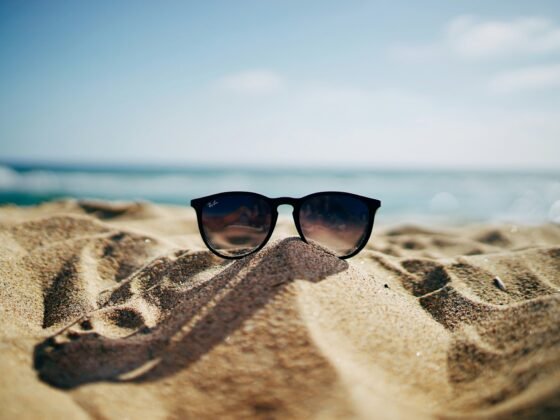Though cruise ships make one think of luxury and relaxation, it is common to hear news of cruise ships colliding with other vessels at sea and passengers getting hurt or injured onboard. Passengers may find themselves involved in complex legal issues and medical concerns after being involved in cruise ship accidents.
A cruise ship accident can be difficult to analyze because the laws and regulations governing floating cities are so unique. Various factors, including maritime law, jurisdictional questions, and fine print on ticket contracts, can come into play. In addition, cruise ship owners have expert defense lawyers, and seeking compensation from them can be tricky.
In this article, you will learn everything you need about getting the right medical treatment and making a claim following a cruise ship accident.
It is important to recognize the different situations that can cause cruise ship accidents and understand them. A cruise ship accident can range from a slip and fall on a wet deck to a more serious incident such as a fire onboard. Most cruise ships offer various activities and facilities, so passengers may also suffer injuries during recreational activities or due to malfunctions.
These incidents sometimes occur in international waters or foreign ports, which can complicate any potential compensation claims. Passengers on cruises are subject to special rules under the Athens Convention, which must be followed in many cases. As a result of this complexity, cruise ship passengers must understand their rights and the cruise line’s responsibilities regarding their safety.
Maritime Law and the Athens Convention
Cases involving cruise ship accidents often revolve around maritime law, especially the Athens Convention. This specialized convention governs international travel activities, incidents, and injuries. If you are interested in making a cruise ship accident claim, it is essential to understand how maritime law shapes the legal landscape.
- For Non-Passengers – An important aspect of maritime law that affects those who are not passengers, such as crew members, is jurisdiction. Because cruise ships frequently travel through international waters and visit ports in different countries, it can be challenging to determine which country’s laws are applicable in such circumstances. In most cases, the flag state’s laws apply, but there are exceptions, especially if an injury is sustained while docked or within another country’s territorial waters.
- Liability – The Athens Convention sets out principles governing cruise lines’ liability for accidents on their ships and outlines their legal obligations. To succeed in their claim, passengers must either prove that a defect on the ship caused their injuries or that their carriers were negligent. It may be necessary to prove that the cruise line neglected to maintain safe conditions on the ship or failed to properly warn passengers of potential hazards.
- The Claims and Litigation Process – According to the Athens Convention, claims must be filed within a strict deadline. It would be a good idea to seek legal advice as soon as you can after the accident.
Common Accidents Aboard a Cruise Ship
Everyone has the right to be protected against preventable dangers onboard a cruise ship. As a safety measure to protect passengers and crew, cruise ships must comply with the vessel inspection laws of their country of registration. In addition, ships departing U.S. ports must meet international sea safety standards and crew competency.
However, even with these safety measures, accidents and other harmful events can result in serious injuries to victims. On a cruise, passengers are most likely to be injured by the following:
- Swimming pools are common sites for cruise ship accidents. Slippery pool decks, loose hand rails, and drowning are all possible causes of swimming pool injuries.
- Passengers are commonly injured in slip-and-fall accidents. Several factors can cause a slip and fall, including luggage left in hallways, unstable stairs, and unmarked elevation changes.
- Recreational activities, including rock climbing, sky rides, scuba diving, and water sports, can also cause accidents. A product liability claim can also arise from equipment defects.
- Crew members and other guests may also attack passengers physically or sexually, resulting in physical injuries and emotional distress.
What to Do Immediately After Getting Injured in a Cruise?
In the event of an injury suffered on board a cruise ship, you must take immediate action and seek medical care as soon as possible for your health and to protect your rights in the future. Here’s a simple guide to follow:
- First, seek medical attention. Healthcare professionals and medical facilities are available on cruise ships. No matter how minor, injuries should always be evaluated for your well-being and for medical records.
- Report the incident to the ship’s staff as soon as you can. In this report, there should be an explanation of what happened, where it happened, and when it happened. Make sure you obtain a copy of this report. It will serve as important evidence in any future claim and ensure remedial measures are taken to prevent future injuries.
- Make sure to take pictures of the area where the injury occurred. This is especially true if there were any hazards, such as wet floors. Get the contact information of any witnesses. You should also keep track of the medical procedures and expenses associated with them.
- Record all correspondence with the cruise line or their representatives regarding your injury. You can include emails, letters, and notes from your phone conversations.
- Get legal advice if you can. In the aftermath of your injury, you may be asked to sign documents or receive a settlement offer from the cruise line. Don’t sign without getting letting a lawyer look over the document. Getting legal advice before signing or accepting anything is essential.
Get Proper Legal Representation
When seeking damages for your cruise ship accident, you should expect to face a team of lawyers representing the cruise line. An accident claim can quickly become overwhelming if you handle it alone.
It is important to consult a knowledgeable attorney following a cruise ship injury to determine who is responsible and what should be done in your case. If you pursue a claim, your lawyer will explain your legal rights, recovery options, and potential outcomes.
Image: Pexels, Matthew Barra












